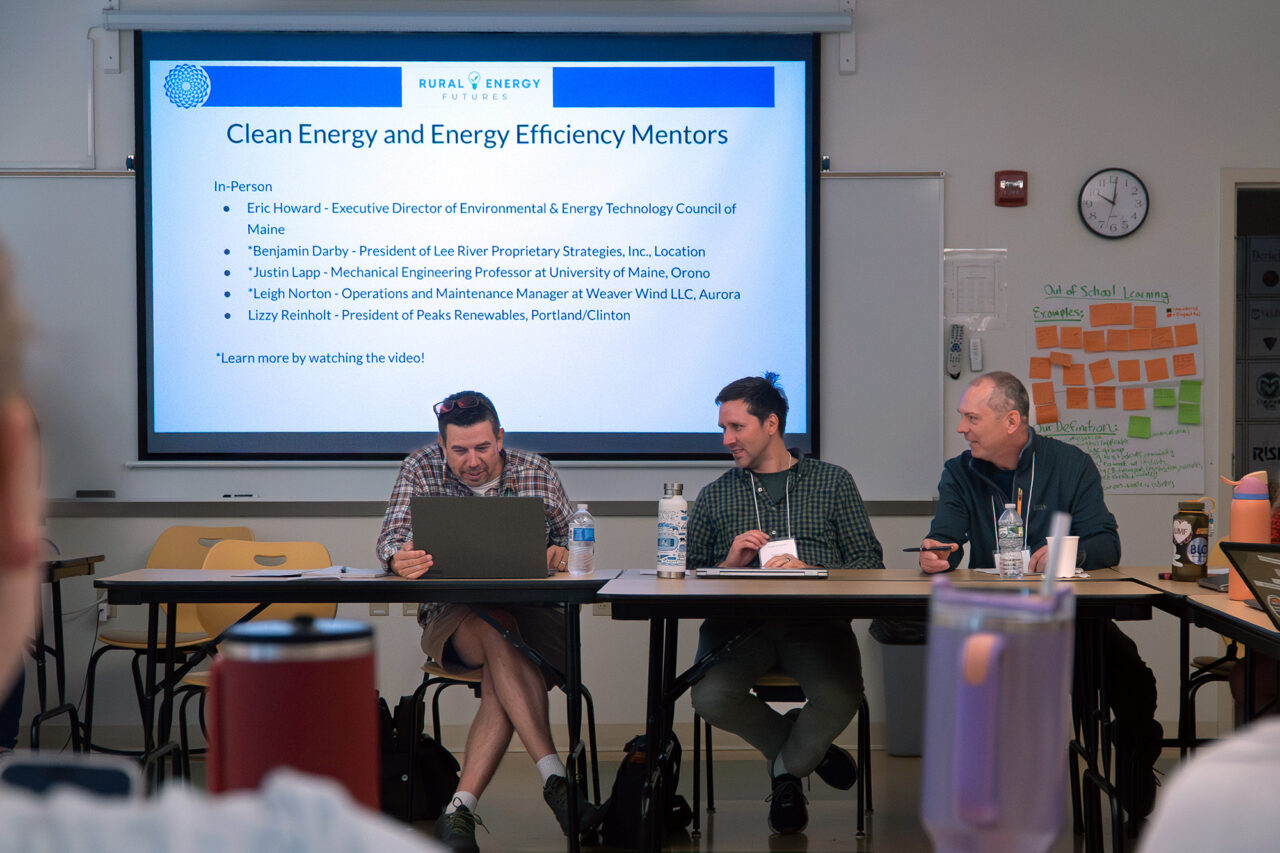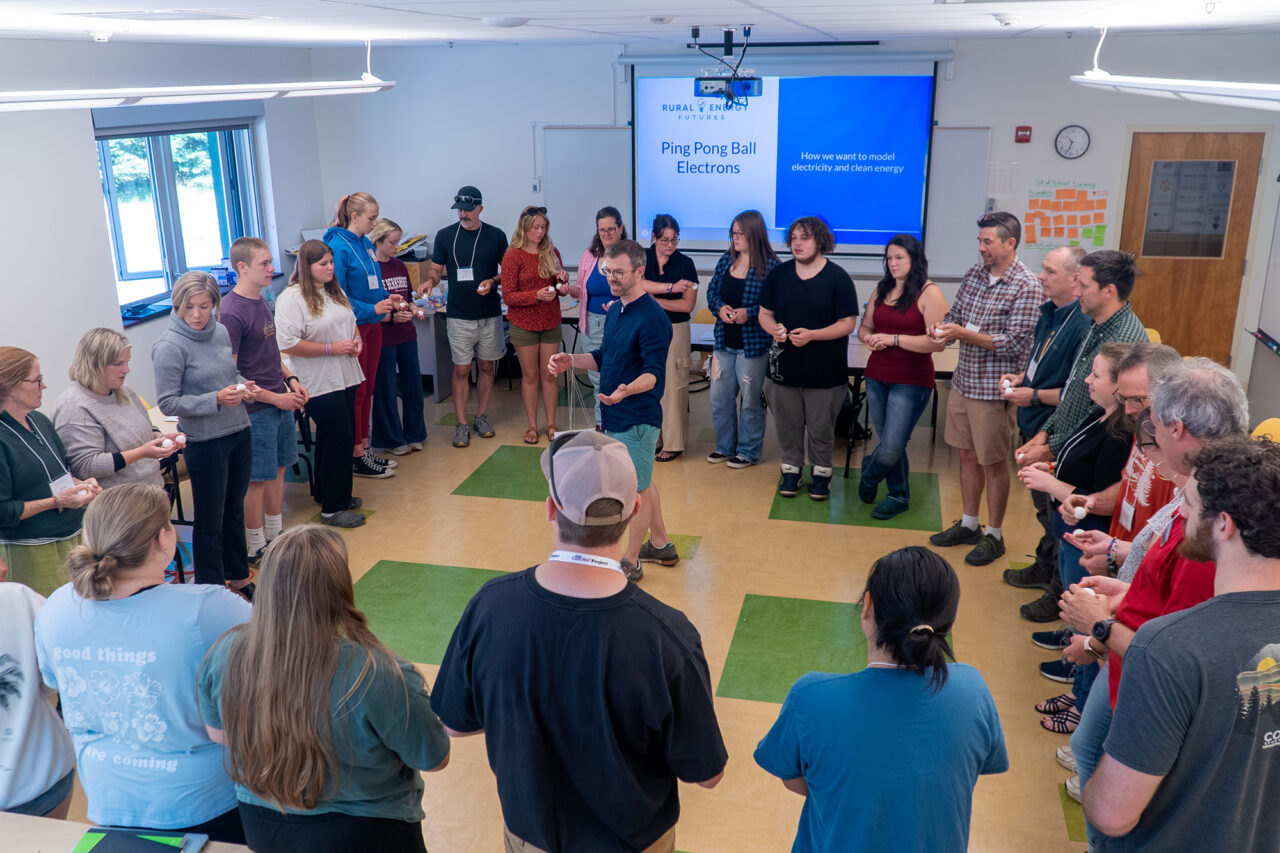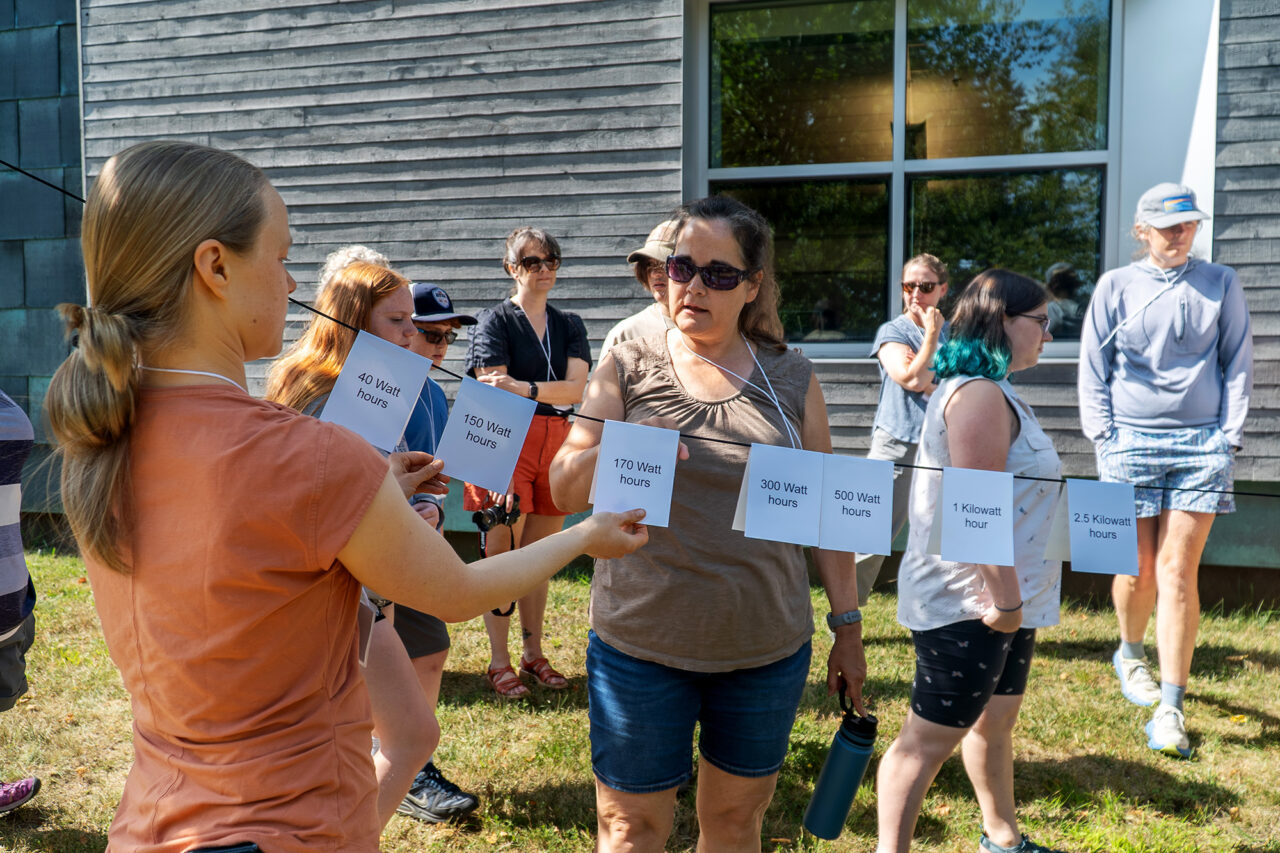Mentorship Plays Pivotal Role in Rural Energy Futures Project
Posted on

This post is part of a series exploring how the Rural Energy Futures project engages Maine teachers, students, and energy industry professionals to explore energy transition topics and develop integrated curriculum.
According to David Gibson, Director of Energy at the College of the Atlantic and Rural Energy Futures design team member, “There’s essentially been no dedicated energy education at the middle or high school level for decades.” By his estimate, the clean energy workforce in Maine will need to increase tenfold—well beyond the state’s official goal of doubling it by 2030—in order to meet efficiency targets. In a vacuum, this wouldn’t bode well for the future.
But the REF project’s model of connecting students with energy industry professionals could be paradigm shifting, he says. “Starting at this level, with this project, there’s a huge opportunity for the students to engage in hands-on, practical understanding of energy and how energy works in their communities.”
Meet the Energy Mentors
The project is fortunate to have Maine-based energy experts serving as mentors to the educator and student participants and sharing their diverse perspectives across the clean energy industry. Below we highlight a few of these professionals involved in supporting the middle and high school educators involved in the project.
Justin Lapp is an assistant professor of mechanical engineering at the University of Maine in Orono, a job that includes both teaching and conducting research.
“Most of my research revolves around technology for clean energy and energy efficiency. The goal that I’m really focused on is addressing climate change by replacing fossil fuels with technologies that use renewable energy or reduce energy use in ways that are still useful and work well.”
David Kunhardt recently retired from a long career funding affordable housing and community development. He dedicated the last 13 years to initiatives funding solar energy, most recently leading an organization working exclusively with schools, cities, and other nonprofits wanting to adopt solar energy.
“Solar provides independence. It provides freedom from working for distant, corporate monopoly utilities. [As a career path] it is a way that you can do a variety of different kinds of work as you are helping other people. Finally [working in the solar energy field] is a way to clear the air and help prevent climate change.”
Eliza Donoghue is the executive director of the Maine Renewable Energy Association, a trade association focusing on advocacy, law, and regulation related to renewable energy.
“A big part of my job as a lobbyist is working with individuals that I might disagree with on some aspects of policy, but agree with on certain things. It’s about identifying those common values, and using those shared values to advance policy that helps in the green energy transition.”
Leigh Norton is an operations manager at a wind farm in Eastern Maine focusing on maximizing power generation and ensuring the site operates safely and efficiently.
“I grew up in Washington County and attended Washington Academy. After high school I attended Maine Maritime Academy and earned a degree in marine engineering. After college I worked for 21 years in Western Maine at two traditional power plants, and in 2020 had the opportunity to move back to the area and begin working at the wind farm. It felt great to work in a rural setting again and work more outside.”
Because energy transition in rural Maine is an issue that is both pressing and complex, mentors play a key role in translating technical information and providing guidance contextualized in real-world challenges that they face in their jobs. Tapping into expert knowledge in clean energy generation, energy transmission, and energy policy enables students to gain a big-picture understanding of the energy sector, while also ensuring that what they learn is grounded in first-hand experience that will be directly relevant to their future.
Learn more about the goals of MMSA’s Rural Energy Futures project.

